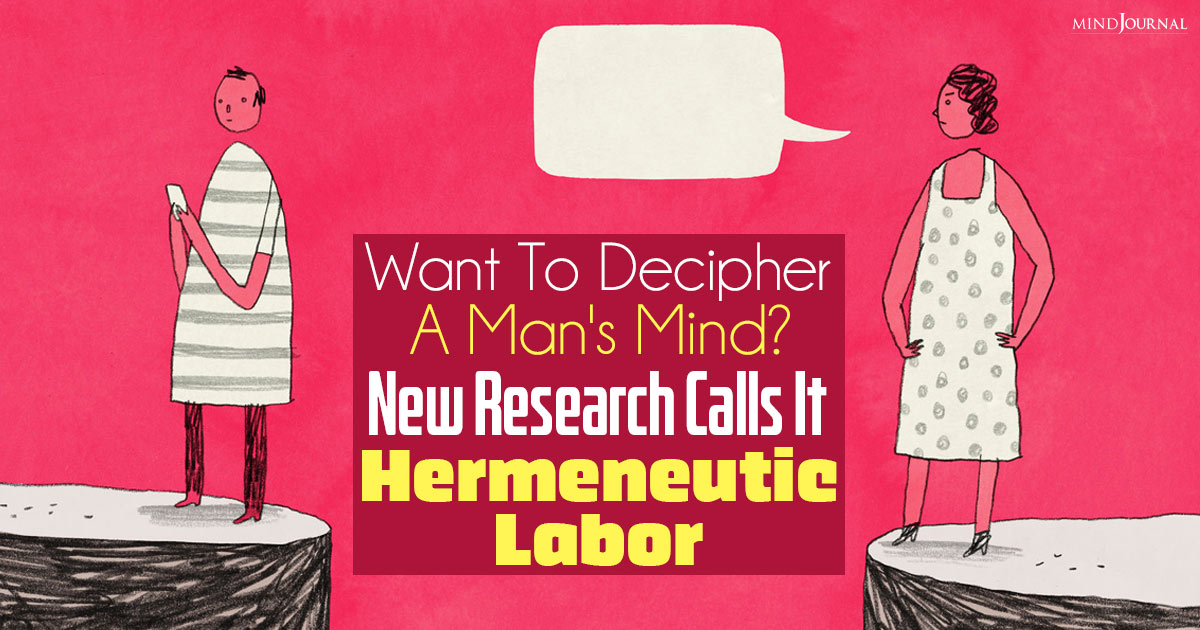“I was feeling insecure. You might not love me anymore. I was shivering inside,” are some of the lyrics to “Jealous Guy” by John Lennon.
The song quite clearly conveys the idea of a man being afraid that his partner might be about to reject him. In reality, such jealous feelings might motivate men to engage in jealous behavior to ensure that their female partners are sexually faithful. Jealousy might manifest itself as mate retention behavior which may be displayed in two ways.
Firstly, there is cost-inflicting mate retention behavior, such as limiting a partner’s movements, taking up all of their time, or making derogatory comments about their partner in the company of other people.
Cost-inflicting behavior may have the effect of reducing a partner’s feelings of self-worth and ultimately make them feel unable to find an alternative relationship. Alternatively, it may have the effect of making them start to consider the relative benefits of an alternative relationship, and in this way, it may be a risky strategy for a man.
Related: 7 Little Lies Jealousy Whispers in Your Ear
Alternatively, benefit-provisioning mate retention behavior — for example, buying partner gifts or giving them compliments — may have the effect of making their partner feel more satisfied with their current relationship, possibly reducing the likelihood of infidelity or their partner leaving the relationship completely. As such, benefit provisioning behavior is a less risky strategy for a man.
Mate Value
Quite obviously, male mate retention behavior may be motivated in situations where the likelihood of infidelity is increased, such as when their partner is in the company of other men. However, male mate retention behavior may also be motivated when men are partnered with women who possess greater female mate value, for example being young and physically attractive, which are indications of genetic fitness and reproductive potential, valued by men.
However, it is not only female mate value that might predict male mate retention behavior. Such behavior might also be determined by male mate value also. For example, a male of low mate value (with limited money and resources) may be unable to employ benefit provisioning mate retention strategies, such as buying gifts, and consequently will resort to cost-inflicting strategies in order to prevent his partner from straying.
The extent to which it is female or male mate value that determines mate retention behavior was investigated by Emily Miner, Valerie Starratt, and Todd Shackleford (Miner, Starratt, & Shackleford, 2009). The researchers employed female participants who completed the Trait-Specific Dependence Inventory (TSDI), which analyses mate value in terms of the ease with which people think they can find an alternative partner equal to or better than their current partner on characteristics such as physical attractiveness, generosity, and ambition.
Participants were asked to compare certain characteristics of their current partner with alternatives. For example, “If you and your current partner broke up, how difficult would it be for you to find another partner who is as (physically attractive/generous/ambitious)?” They also included another version of the TDSI to assess female participants’ assessments of their own mate value: “If you and your current partner broke up, how difficult would it be for him to find another partner who is (physically attractive/generous/ambitious) as you?”
The participants then completed the Mate Retention Inventory which assessed how often female participants reported that their partners engaged in cost-inflicting strategies:
- Direct guarding (“did not take me to a party where other men would be present”)
- Intersexual negative inducements (“pointed out the flaws of other men”)
- Intrasexual negative inducements (“told other men I was not a nice person”)
And benefit-provisioning strategies:
- Positive inducements (“bought me an expensive gift”)
- Public signals of possession (“put his arm around me in front of others”)
Related: 12 Signs Someone Is Secretly Jealous Of You
What Determines Mate Retention Strategy?
Firstly, the researchers found that female judgments of their own and their partner’s mate value to be related, in other words, women who perceived themselves to be of high mate value judged their partners to be of high mate value also.
In terms of whether it was male or female mate value that determined mate retention behavior, they found that higher female mate value to be associated with greater use of male benefit-provisioning mate retention behavior. However, lower female mate value was not associated with male use of cost-inflicting mate retention strategies. The only exception being the association between low female mate value and male direct guarding behavior. Therefore, the female mate value only explains half the story.
In terms of male mate value, the researchers found that high male mate value to be positively associated with benefit-provisioning mate retention behaviour and low male mate value to be associated with cost-inflicting mate retention behaviour. More specifically low male mate value was associated with male use of direct guarding and intrasexual negative inducements (pointing out the faults of other men). Therefore, it would seem that male mate value more than female mate value is the factor that determines male mate retention behaviour.
Indeed, when the researchers compared men’s or women’s mate value, in determining mate retention behavior, they found that it is men’s more than women’s mate value which more strongly determines both benefit-provisioning and cost-inflicting mate retention behavior. More specifically, men’s but not women’s mate value predicts the use of direct guarding and public signals of possession.
The only exception was that it was women’s but not men’s mate value that predicted male use of positive inducements. The researchers explain this by saying that positive inducements are directly connected to a man’s appreciation of his partner’s attractiveness, which is one of the main attributes of female mate value.
Overall then, male mate value more than female mate value seems to determine the type of mate retention behaviour, with males of higher mate value performing more benefit-provisioning behaviour and males of lower mate value performing more cost-inflicting mate retention behaviour.
Related: How To Stop Being Jealous
It is worth noting that in this study the researchers used only female reports of mate value of both themselves and their partners. Nevertheless, the finding is consistent with previous research on partner violence which has found that men of lower socioeconomic status or in low-status jobs and thus of lower mate value engage in more domestic violence than men of higher socioeconomic status or those in higher status jobs.
The finding could be linked to an additional factor such as male feelings of self-worth, but either way, it is concerning.
References:
Miner, E., Starratt, V. G. & Shackleford, T. K., (2009). ‘It’s Not All about Her: Men’s Mate Value and Mate Retention’. Personality and Individual Differences, 47 (3), 214-218.
Written By Martin Graff Originally Published In Psychology Today









Leave a Reply